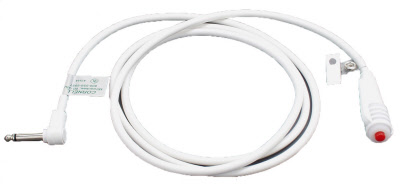 |
| The Schaap house |
"Show, don't tell."
It's a little writing class homily that I preached for more years than I care to admit. Some ex-students remember nothing else I ever said. But then, honestly, I could have done worse. "Show, don't tell" is as sound a sermon as I could have delivered, and it's only three words long.
But it's not simple, nor is it easy to live by because it's much easier to tell than it is to show. For years, I couldn't help but be proud of what people call a "work ethic" among people whose origins I share. Want to see curb and gutter in a small town on the northern plains?--look for population with a Dutch background.
Still, I didn't know what a "work ethic" was until we built this house and squads of master craftsmen swarmed in--carpenters, roofers, electricians, dry-wallers, carpet layers, tilers--and put the whole thing together. Okay, I'll confess up--a man who spent a lifetime in classrooms had never seen before, close up, how hard some men work.. Made me sweat just to watch. And all of them weren't Dutch either; some were Hispanic.
I could always talk about "work ethic," but the guys who built this house--and they were exclusively male--showed me what a "work ethic" was.
It's the source of great pride and joy here, as it is wherever that description is lavished, in part because really industrious people don't have to talk about working hard, don't have to brag. They can just nod toward what they do. They can "show, not tell." When this house was built, those squads of craftsmen did.
But when it's brandished, when it's preached unmercifully, it grows heartless. "I work hard every day, but that idiot down the street uses his food stamps to buy smokes. If he'd get off his ass and do something. . ." You know. You don't have to be Jewish and born B.C., to be a Pharisee.

I'm wondering lately if there isn't more.
When he moved into comprehensive care, Dad was given an extra button. When he and mom were in independent living, there was always one beside the toilet, and another one beside the bed when we moved him over to assisted. Now, in a skilled nursing facility, he's got an extra one right beside him on his chair, a button the people who moved him in made darlingly clear he could use anytime he liked, 24/7. "You want a beer?" the manager told him, her volume up high, "just push the button, tell the nurse, and she'll get you one." Beer on demand is no small thing in Orange City, Iowa. After two months there, I don't think he still believes it.
The problem is, he can't use the darn button. There it sits, forlorn, slumped over the arm of his chair. We can't get him to use it. Could well be his memory isn't the greatest--there's that too. But I think he simply can't get himself to believe that all he has to do is press a button and someone will bring him water or beer or a chocolate malt--anything, anything his heart desires. He can't.
He was a farmer who worked hard all his life long. When the sows were farrowing, he used the same lumber to put up pens that got shore up with the same bent-up ten-penny nails. Never had a son to help him, only rarely a hired man. He made a living for his family by good strong hard work, his. Lots of it. Seems that farrowing always happened mid-January, middle of a blizzard too. No complaints. He may well have hated the cold but he loved his work.
So much that today he really can't begin to imagine getting served anything his heart desires by someone who will come around and do his bidding if he merely pushes a button. We can't get him to use it. It's plainly beyond him.
I wonder if he doesn't find getting served to be harder work than he's ever done. And I'm wondering too lately whether the kind of really robust work ethic people here love to tout might just create hearts that find it hard to be loved.
I not trying to tell anyone anything, just showing you one valuable unused button in Dad's room.
No comments:
Post a Comment